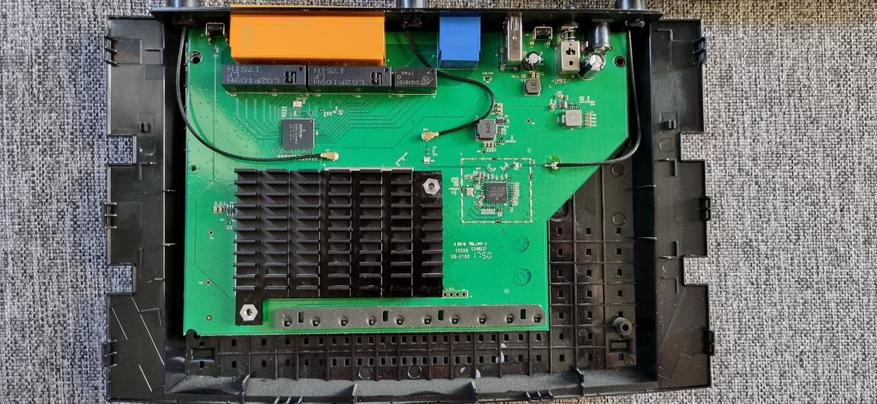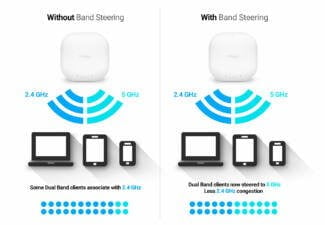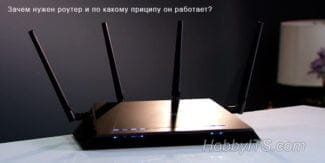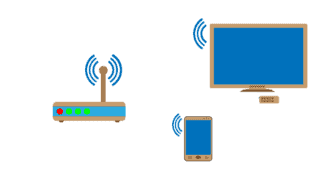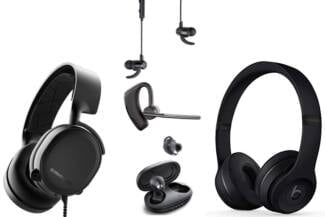That is, with this density of radio emission, it makes little difference whether you turn off the router at night or not. The impact of multiple neighboring access points is too high. And every owner is trying to turn the power up to the maximum to get the best possible reception in the apartment. No one thinks about the health of the neighbors, unfortunately.
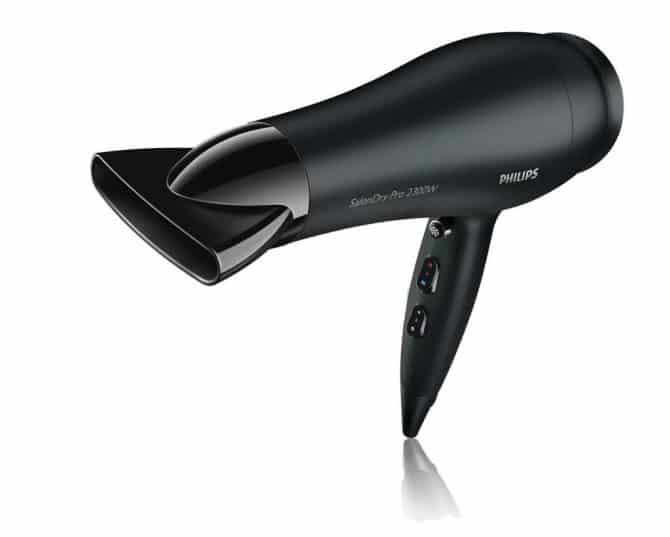
How much electricity consumes Wi-Fi router
Let's take a look at the electricity consumption of an average router, which today are almost in every apartment, in every office. So, how much electricity can consume such a familiar and indispensable for us electronic device?
On average, different models of Wi-Fi routers consume from 4 to 15 watts per hour. That is, when working around the clock per month router consumes from 3 kW to 11 kW, recalculate for money you can yourself, multiplying by your tariff. For example, if 1 kW is 2 rubles 50 kopecks, then multiply 3 by 2.50 = 7 rubles 50 kopecks and 11 multiplied by 2.50 we get 27 rubles 50 kopecks, this means that the router during regular operation for a month will spend from 7 to 28 rubles (depending on the model, that is power). Well, if you have a dual-rate meter – then the costs will be even less. So there is no particular point in turning off the router regularly, except in the case of prolonged absence. If saving electricity is very important – you can turn off the router at night or at other times of its inactivity, which will help you to save up to 20 rubles per month on electricity bills.
To reduce power consumption in the router, you can reduce the power of the transceiver-receiver to what you need in your particular case. From the factory, all routers are set to the maximum power of their transceivers, while for Wi-Fi coverage of a particular room, usually 50% (or even less) of the router's transceiver power is sufficient.
Also, don't forget to read about how best to install a Wi-Fi router so that it will optimally cover the necessary room, while not having a negative impact on your health.
Blog about modems, routers and gpon ont terminals.

When I was a part-time installer and went on subscriber requests, I was often asked the question – should I turn off the WiFi router at night or let it work. The topic is really interesting. Especially since some users don't think about it at all – turn it on and forget about it, while others, on the contrary, turn off the router almost every time they finish working on the Internet. The two main reasons they do this are the power consumption of the router and the effects of wireless on the human body. Well, let's try to figure it out.
kW consumption calculations
Let's assume that you have a 1200 watt thermopot (that means it consumes 1200 watts/hr (1.2 kW/hr) and has a capacity of 4 liters.
In the morning you pour a full thermopot 4 liters to boil:
Calculation of consumption per minute: 1200(appliance power) / 60(minutes per hour) = 20 watts/per minute.
Let's assume that it takes 15 minutes to boil completely: 15(number of minutes) * 20(consumption per minute) = 300 watts/per day. If he doesn't boil 4 liters again, but if he does, he will spend 600 watts/day.
It takes about 30 watts/hour to keep the boiling water flowing:
In a day of 15-20 hours it uses up: 20(number of hours to maintain) * 30(consumption to maintain boiling water) = 600 watts/day.
Total consumption per day: 600(for boiling water) + 300(for boiling water) = 900 W/day (=0.9 kW/day).
Electricity consumption per month: 30(days of operation) * 0.9(consumption per day) = 27 kW/per month.
The amount of payment for the electricity consumed by the thermostat: 27(consumption per month)* 3,5r (for example, the rate for 1 kWh, in each region, district, city and village different rates) = 94,5 rub.
Attention we have calculated the consumption of 1.2 kW thermopot, if you use a device with a smaller volume or less power, the cost will be reduced!



Hair dryer power – which one to choose?
It is the power that determines how well the hair dryer copes with hair drying. If you have thick and long hair, a low-power hair dryer will dry it for a very long time. Perhaps half an hour. Intermittently. Because the hair dryer will overheat, it will burn your hands, and you will have to cool it. And the hair will stay wet.
Doubtful pleasure, right?
On the other hand, with a powerful hair dryer set to maximum, you can burn yourself if you point it directly at your scalp or face. Or, for example, you can over-dry and damage the hair – if it is short, thin and weakened.
Let's understand what hair dryers are considered powerful – and what power hair dryer is better to prefer in your particular case.
Table of contents:
- Three categories of power in hair dryers
- Low-power hair dryers – up to 1,500 watts
- Standard household hair dryers – from 1,500 to 2,000 watts
- Real professional models – from 2,000 watts
- Why do I need to switch between different wattages?
- How do I use my high power hair dryer?
Saving money
The first thing to sort out is: how much do we pay for the power that a Wi-Fi router consumes when it's always on? In answering this question, it's worth bearing in mind that the power consumption of a Wi-Fi router, even when it's active, is minimal. Depending on the Wi-Fi router model, consumption ranges from 6 to 15 Watt/hour. In my case, the Wi-Fi router model consumes 12 watts per hour. So, to give you an example, let's calculate how much I would have to pay for electricity per day, month and year if my Wi-Fi router is constantly on.
From the calculations, you can see that the consumption even if the Wi-Fi router is constantly working is insignificant and for a year the device will have to pay only 352.8 rubles. I do not think that this way you can really save the family budget, or to be more accurate – to save significantly. The savings by turning off the Wi-Fi router at night will be so insignificant and will be about a third of the total amount. It is clear that for the sake of such a figure there is no special point in doing it. Because it would take about 10 years for you to be able to feel a significant difference in the cost of electricity.
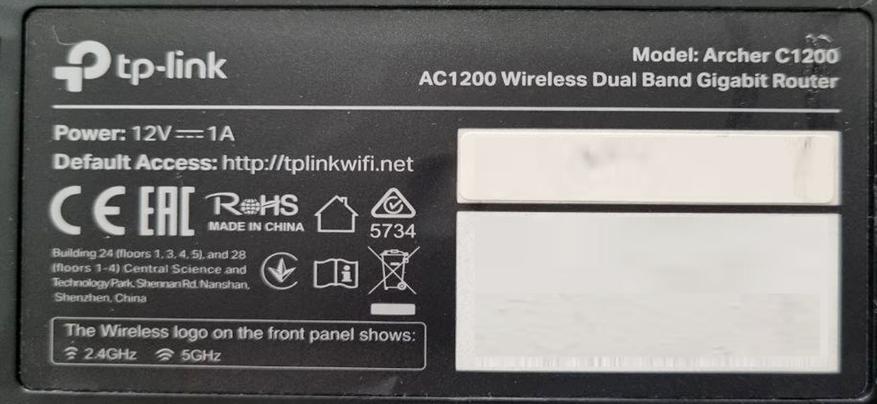
Do you need to turn off your Wi-Fi router to prolong its life and save on the purchase of a new device?
There is another interesting point about the lifespan of a household Wi-Fi router. It can range from a few years to 10-12 years. However, the most optimal lifespan of a Wi-Fi router is about 6 years. It all depends on materials and build quality. Some believe that if the device is in active 24 hours a day, its factory life will run out much faster. Therefore, in order to extend the life of the router, you should turn it off from the mains at least overnight. This may seem really strange to some, but in fact, turning it off and on all the time will put the device out of operation much faster than continuous operation. So if you turn it off all the time, you'll end up buying a new Wi-Fi router much sooner.
This is explained by the fact that during the inclusion of the router in the power grid currents exceeding the normal load – this is one of the main reasons for the breakdown of the device. In addition, modern Wi-Fi routers, as a rule, are designed for continuous operation, and usually do not have components that overheat to a significant extent during operation. Therefore, a Wi-Fi router can work normally around the clock without the risk of overheating or breaking down. By the way, if you do need to turn off your Wi-Fi network, you don't have to unplug it at all. You can easily do this by going to the settings menu or using the on/off button on the device.
